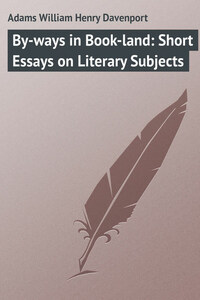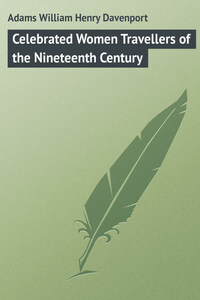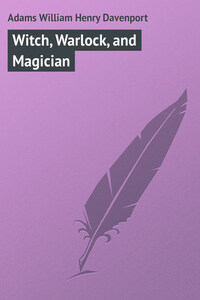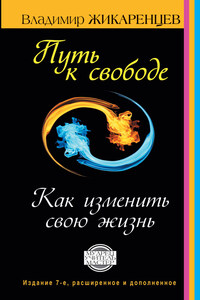One is for ever hearing enough and to spare about old books and those who love them. There is a whole literature of the subject. The men themselves, from Charles Lamb downwards, have over and over again described their ecstasies – with what joy they have pounced upon some rare edition, and with what reverence they have ever afterwards regarded it. It is some time since Mr. Buchanan drew his quasi-pathetic picture of the book-hunter, bargaining for his prize,
‘With the odd sixpence in his hand,
And greed in his gray eyes;’
having, moreover, in his mind’s eye as he walked
‘Vistas of dusty libraries
Prolonged eternally.’
Mr. Andrew Lang, too, has sung to us of the man who ‘book-hunts while the loungers fly,’ who ‘book-hunts though December freeze,’ for whom
‘Each tract that flutters in the breeze
Is charged with hopes and fears,’
while
‘In mouldy novels fancy sees
Aldines, Bodonis, Elzevirs.’
There are periodicals which cater solely for old-book adorers; and while on the one hand your enthusiast will publish his ‘Pleasures’ and ‘Diversions,’ on the other a contemporary will devote a volume to the subjects which attract and interest ‘the Book Fancier.’
Meanwhile, is there nothing to be said of, or by, the admirer of new books – the man or woman who rejoices in the pleasant act of turning over new leaves? At a time when volumes are issuing by the dozen from the publishers’ counters, shall not something be chronicled of the happiness which lies in the contemplation, the perusal, of the literary product which comes hot from the press? For, to begin with, the new books have at least this great advantage over the old – that they are clean. It is not everybody who can wax dithyrambic over the ‘dusty’ and the ‘mouldy.’ It is possible for a volume to be too ‘second-hand.’ Your devotee, to be sure, thinks fondly of the many hands, dead and gone, through which his ‘find’ has passed; he loves to imagine that it may have been held between the fingers of some person or persons of distinction; he is in the seventh heaven of exaltation if he can be quite certain it has had that honour. But suppose this factitious charm is really wanting? Suppose a volume is dirty, and ignobly so? Must one necessarily delight in dogs’ ears, bask in the shadow of beer-stains, and ‘chortle’ at the sign of cheese-marks? Surely it is one of the merits of new leaves that they come direct from the printer and the binder, though they, alas! may have left occasional impressions of an inky thumb.
It might possibly be argued that a new volume is, if anything, ‘too bright and good’ – too beautiful and too resplendent – for ‘base uses.’ There is undoubtedly an amari aliquid about them. They certainly do seem to say that we ‘may look but must not touch.’ Talk about the awe with which your book-hunter gazes upon an ancient or infrequent tome; what is it when compared with the respect which another class of book-lover feels for a volume which reaches them ‘clothed upon with’ virtual spotlessness? Who can have the heart to impair that innocent freshness? Do but handle the book, and the harm is done – unless, indeed, the handling be achieved with hands delicately gloved. The touch of the finger is, in too many cases, fatal. On the smooth cloth or the vellum or the parchment, some mark, alas! must needs be made. The lover of new books will hasten, oftentimes, to enshrine them in paper covers; but a book in such a guise is, for many, scarcely a book at all; it has lost a great deal of its charm. Better, almost, the inevitable tarnishing. All that’s bright must fade; the new book cannot long maintain its lustre. But it has had it, to begin with. And that is much. We feel at least the first fine careless rapture. Whatever happens, no one can deprive us of that – of the first fond glimpse of the immaculate.
But the matter is not, of course, one of exterior only. Some interest, at least, attaches to the contents, however dull the subject, however obscure the author. A new book is a new birth, not only to the æsthetic but to the literary sense. It contains within it boundless possibilities. There are printed volumes which are books only in form – which are mere collections of facts or figures, or what not, and which do not count. But if a volume be a genuine specimen of the belles lettres, the imagination loves to play upon it. What will it be like? What treasures lie concealed in it? What delights has it in store for us? In our curiosity we are like the boy in Mr. Pinero’s farcical comedy: ‘It is the ’orrible uncertainty wot we craves after.’ No one can tell what may nestle in the recesses of new leaves. Not even in reference to well-known writers can we be positively sure. They may belie their reputation. The illustrious Smith may make a failure; the obscurer Brown may score a hit. For once in a way Robinson may have produced something we can read; to everybody’s surprise, the great Jones has dropped into the direst twaddle. And if this uncertainty exists in respect to those we know, how much more auspicious is it in the case of those who are quite new to us? What gems of purest ray serene may repose within the pages of the unopened book before us!










